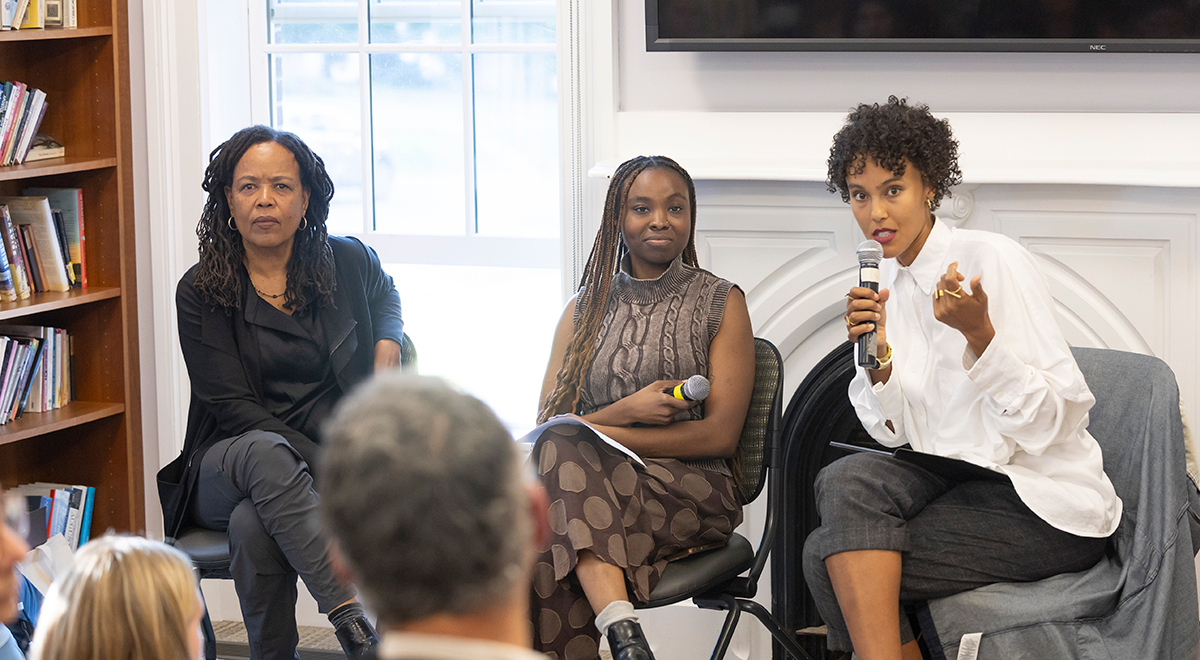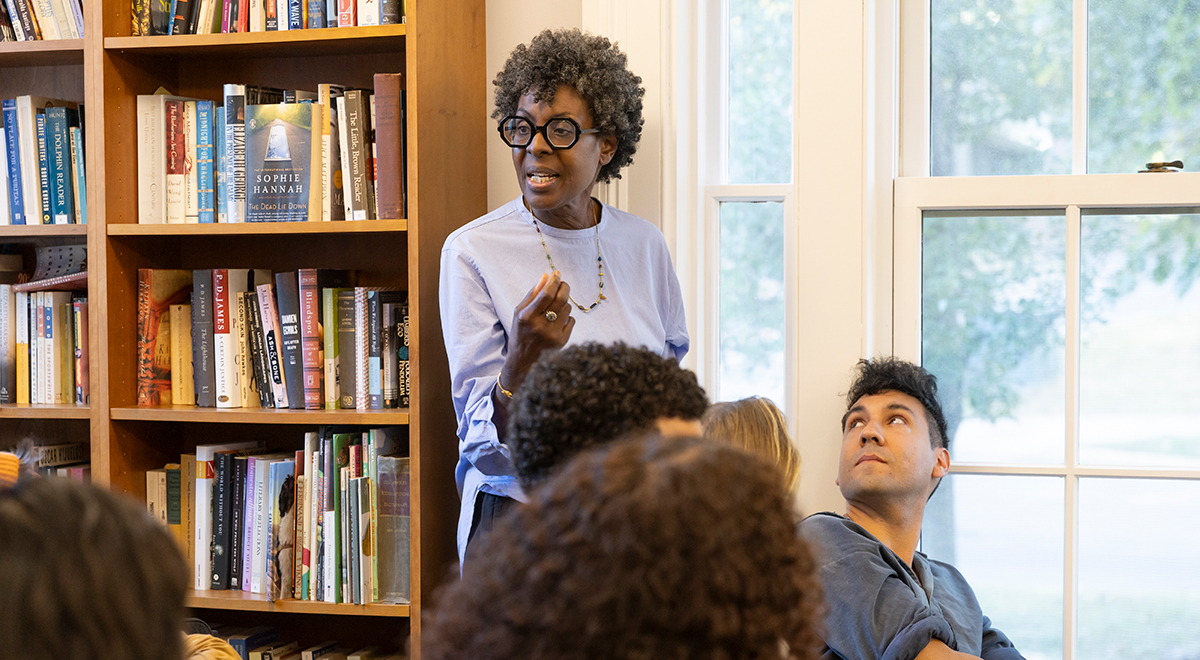Democracy in Action: Three Alumnae Discuss Collaboration on New Performance Work

On October 2, Saidiya Hartman ’83, Hon. ’19 joined Kaneza Schaal ’06 in a conversation about their collaborative process of creating the new performance work Litany for Grieving Sisters. Moderated by Kiara Benn ’20, the event was hosted by Wesleyan’s Center for the Arts and convened in the Shapiro Center for Creative Writing and Criticism.
Based on Hartman’s essay of the same name, which was originally published in the journal Representations in 2022, the work explores themes of collective grief, love, and resilience. The three Wesleyan alumnae discussed the evolution of the project as they collaborate in a democratic process to translate the text into an embodied ritual of movement, song, and storytelling.
The conversation kicked off three days of intensive work that brought Hartman, Schaal, and Benn into collaboration with 14 Wesleyan students, rehearsing and helping to develop the operatic vocal music for the piece. The work will exist as an installation and live performance directed by Schaal and assisted by Benn.
Schaal described the value of Wesleyan’s support of their project, which includes the chance to bring current students into a creative process that goes beyond exposing them to an artistic method. Schaal said they are building a process to address Hartman’s work. “The fundamental process question that Saidiya and I held at the beginning that excited me about the text was ‘how do you make the performance practice that is going to hold this text?’” Schaal said.
In planning conversations with Joshua Lubin-Levy ’06, director of the Center for the Arts, Schaal had expressed the importance of deep relationship-building to her own artistic trajectory—both while studying at and after her time at Wesleyan. During the conversation with Hartman and Benn, Schaal emphasized the importance of this democratic, collaborative effort. “You really try to use that magic when you have it,” Schaal said.

The new piece is a ceremony for life at the end of the world, and reflects on kinship, maternal care, and anti-Black violence. Benn noted that the new work stemmed from Hartman’s essay from 2020—The End of White Supremacy, An American Romance—which explored a momentary rupture in the grip of racism, revisiting W.E.B. Du Bois’s 1920 short story The Comet.
Hartman said her collaboration with artists pushes her to think about what she has written in new ways. “I think very much about practice in my work, but there’s a different level of process in art making, and so sometimes I’m delighted and surprised by that,” Hartman said about making discoveries as she sees actors and performers try to build movement gestures in relation to her words and language, adding another layer to what she wrote.
“For me that’s the part of the process that I love so much because I feel like I encounter something deeper in the text that doesn’t belong to me, but as others are helping me find things inside it,” Hartman said.
“We create from collectivity, and we give onto collectivity, and anyone who defines a performance-based practice otherwise is lying, and is erasing a tremendous amount of labor that went into the generative work,” Schaal said. The entire company contributing to the work includes Okwui Okpokwasili, Helga Davis, Kenita Miller-Hicks, Jade Hicks, Rucyl Mills, Zach Salem-Mackall, and RR Sigel.
Schaal noted that making a great performance in a democratic fashion is hard and acknowledged that individuals such as directors ultimately have to make decisions about the work resulting from the democratic process. “The more you can be clear about that structure the better you will serve the generative generosity that each of those people bring to you in this process,” Schaal said.
The talk was the first event of AFTERWORDS: assembly, a series of public programs that explores the capacity of art to not only bring people together, but to produce new forms of knowledge and ways of knowing the world around us.
Wesleyan’s Democracy 2024 initiative features events dedicated to civic engagement and democratic participation. Learn more at www.wesleyan.edu/d2024.

